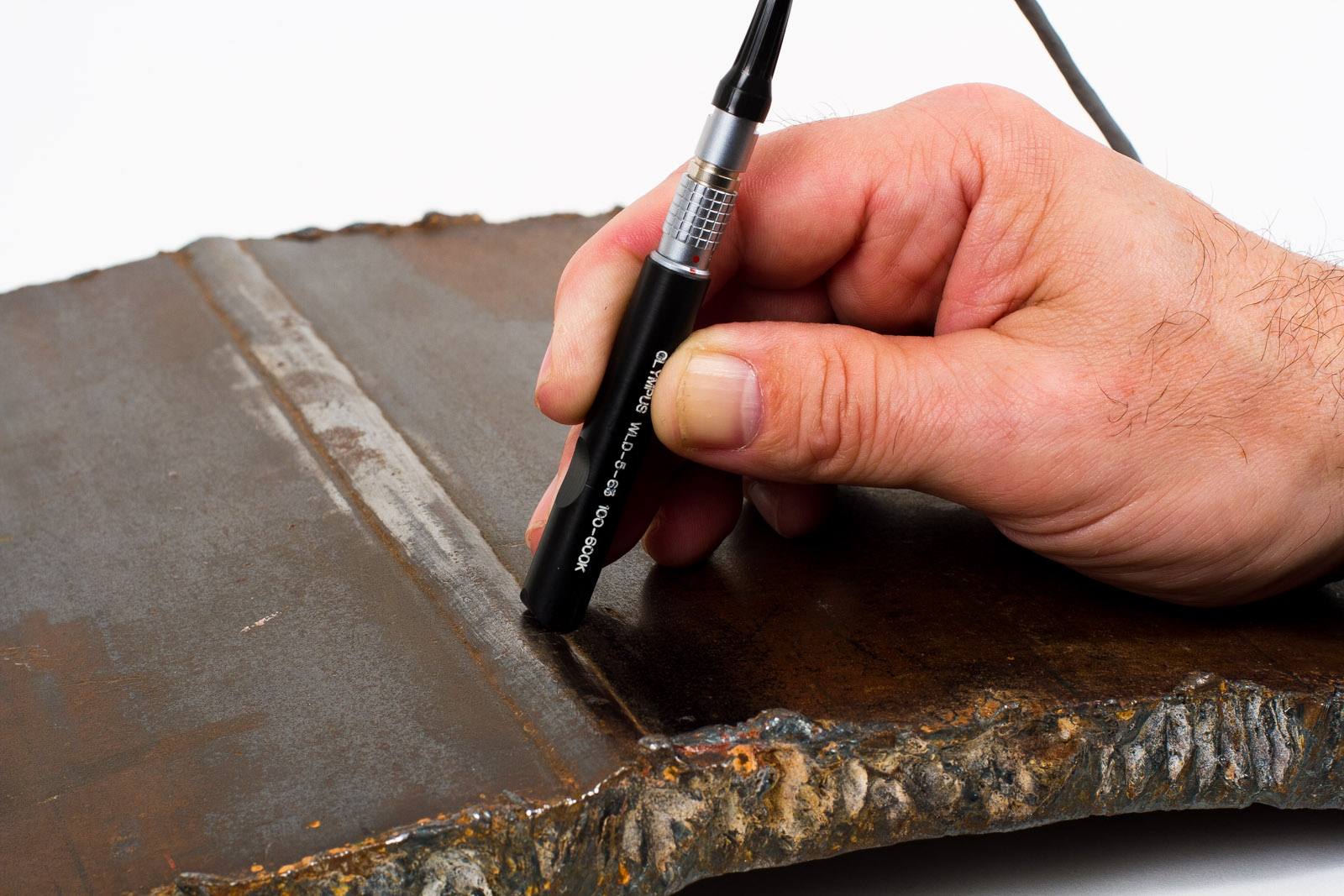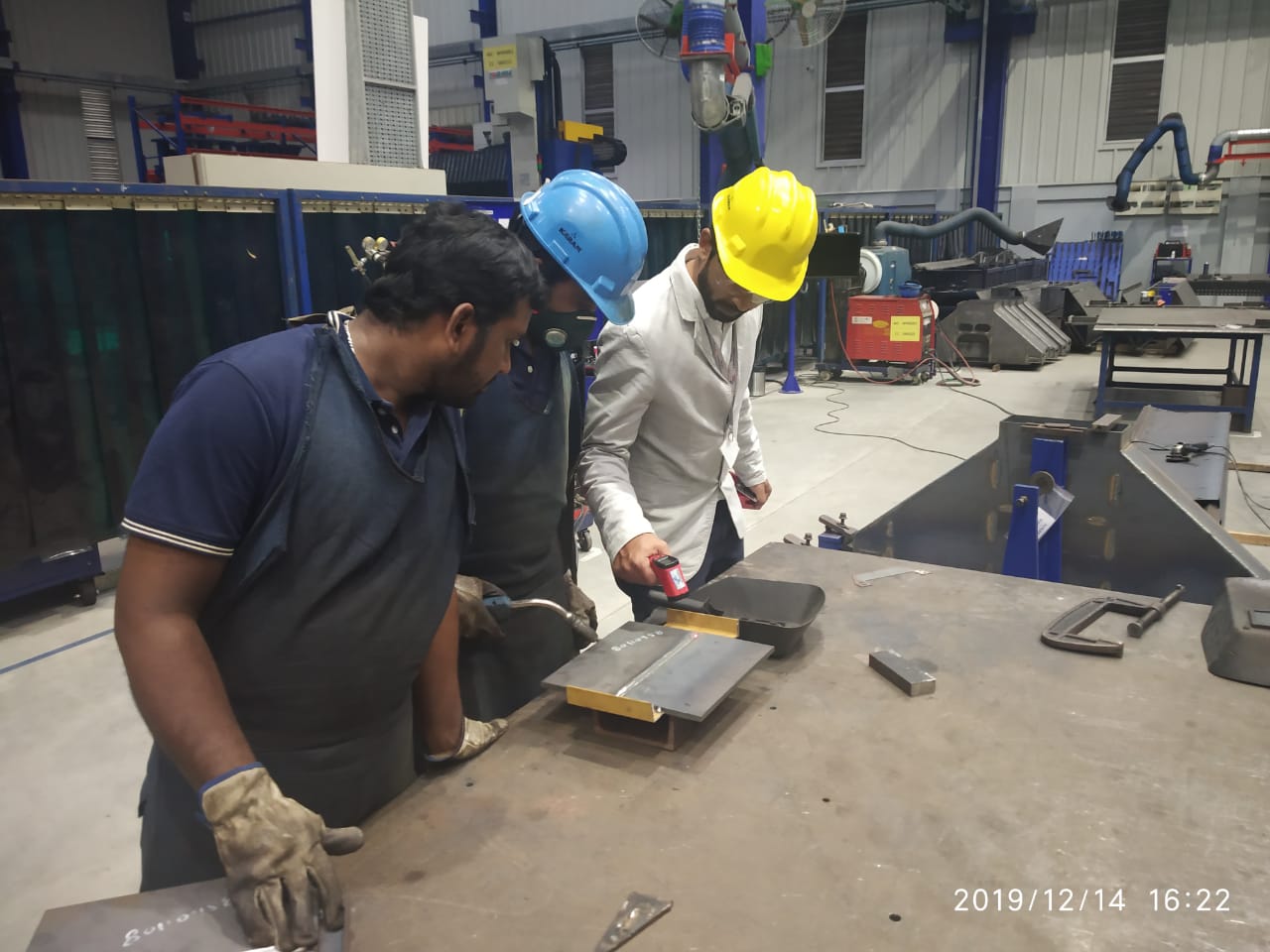The Impact of Extensive Welding Inspection on Industry Specifications: Promoting Safety And Security, Integrity, and Compliance Throughout Various Markets
The role of strenuous welding examination is significantly identified as a crucial element in enhancing industry requirements, where security, reliability, and conformity take priority across diverse fields. What makeovers might we expect in welding approaches as the demand for top quality and security heightens?
Value of Welding Evaluations
Recognizing the critical duty of welding examinations in keeping top quality and safety requirements, industry professionals focus on these examinations to guarantee architectural honesty. Welding evaluations work as a crucial checkpoint in the construction procedure, recognizing problems that could compromise the sturdiness and safety and security of bonded structures. By methodically assessing welds, inspectors can discover problems such as insufficient infiltration, porosity, and fractures, which may not show up to the nude eye.
The relevance of these assessments expands beyond simple conformity; they are vital for guarding lives and safeguarding financial investments. In critical markets such as aerospace, production, and construction, a solitary malfunctioning weld can cause tragic failures, resulting in both monetary loss and human casualties. Consequently, executing extensive assessment protocols reduces these risks and boosts total task reliability.
Furthermore, consistent welding examinations foster a culture of high quality throughout organizations, motivating welders to stick to best practices and preserve high standards in their job. This dedication to high quality not only improves functional effectiveness yet likewise reinforces the reputation of firms within their particular industries. Hence, welding examinations are crucial in advertising safety, integrity, and compliance throughout various sectors.
Secret Industry Requirements and Laws
The framework of welding examinations is underpinned by a robust collection of sector requirements and laws that regulate techniques throughout different industries. Trick organizations, such as the American Welding Society (AWS) and the International Company for Standardization (ISO), establish standards that make sure quality and security in welding procedures. As an example, AWS D1.1 lays out crucial requirements for welding steel frameworks, while ISO 3834 specifies top quality demands for fusion welding.
Along with these certain requirements, sector guidelines like the American National Requirement Institute (ANSI) and Occupational Safety And Security and Wellness Management (OSHA) requireds better enhance conformity by establishing safety methods and functional ideal methods. These guidelines are essential in sectors such as production, aerospace, and construction, where welding integrity is paramount.
Furthermore, sector-specific standards, such as those from the American Society of Mechanical Designers (ASME) for pressure vessels, offer additional layers of scrutiny to ensure that welds meet rigorous security and performance standards. Adherence to these criteria not only assists in regulative compliance but also cultivates a culture of quality and integrity throughout the welding market, eventually safeguarding public well-being and enhancing operational effectiveness.

Advantages of Compliance and Dependability
Continually adhering to market requirements and policies in welding examinations yields substantial benefits, enhancing general reliability and efficiency. The foremost advantage is the assurance of high quality in bonded joints, which directly adds to the safety of frameworks and tools. Compliance with established requirements minimizes the danger of failing and devastating incidents, consequently protecting both human life and beneficial assets.
In addition, organizations that prioritize extensive welding evaluations foster a society of liability and expertise. This commitment not just reinforces the reputation of the firm yet likewise infuses confidence in stakeholders and customers concerning the integrity of services and products. Trustworthy welding procedures lead to minimized costs connected with rework, fixings, and possible legal obligations originating from substandard craftsmanship.
Additionally, preserving conformity with sector requirements helps with smoother governing interactions, as organizations can readily demonstrate adherence to necessary click for source procedures (Welding Inspection go to my blog Gilbert Arizona). This proactive technique can lead to advantageous collaborations and opportunities within the market, as well as access to brand-new markets
Obstacles in Welding Inspection
Browsing the complexities of welding evaluation provides a myriad of difficulties that can impede compliance with industry requirements. The lack of standardized training for inspectors can result in different interpretations of examination criteria, which might compromise safety and security and reliability.
An additional challenge exists in the ease of access of innovative evaluation devices - Welding Inspection Gilbert Arizona. While technologies such as ultrasonic testing and radiography can enhance discovery capabilities, their execution may be restricted by cost or schedule, especially in smaller sized operations. This difference can result in a dependence on less reliable evaluation techniques, increasing the risk of undetected imperfections
Furthermore, the fast-paced nature of contemporary manufacturing often stress inspectors to focus on speed over thoroughness, potentially forgeting essential defects. Governing conformity can be intimidating due to the advancing nature of sector requirements, leaving organizations having a hard time to maintain up with the most recent requirements. These difficulties demand continuous improvement in assessment techniques to make certain the honesty of bonded frameworks across various sectors.
Future Trends in Welding Practices
Emerging modern technologies and advancing techniques are established to transform welding practices in the coming years. Developments in automation, such as robotic welding systems, are obtaining grip, boosting precision and performance while decreasing human error. These systems will not just accelerate production but additionally assist in constant quality assurance, addressing several of the difficulties faced in hand-operated welding.
Furthermore, the combination of artificial knowledge (AI) and artificial intelligence right into welding processes is poised to reinvent evaluation and monitoring. Real-time information analytics will certainly allow predictive upkeep, permitting for positive treatments that lower downtime and boost safety. Increased reality (AR) and virtual fact (VR) innovations are ending see up being crucial in training welders, supplying immersive experiences that improve skill development without the threats connected with standard methods.
Sustainability is also a crucial fad, as sectors look for greener practices. The adoption of eco-friendly materials and techniques, along with energy-efficient equipment, will likely become typical. As industries adapt to these modifications, the emphasis will certainly change toward higher conformity with safety and ecological guidelines, ensuring that welding techniques not just fulfill existing criteria yet likewise pave the method for a safer and even more lasting future.

Final Thought
Finally, rigorous welding evaluations dramatically boost industry standards by making sure safety and security, integrity, and compliance across various sectors. By systematically identifying problems and adhering to established guidelines, these inspections reduce risks associated with structural failures. The promotion of accountability amongst welders brings about better outcomes, promoting trust fund within areas. As sectors proceed to prioritize functional integrity, the value of thorough evaluations will just raise, inevitably benefiting services and society at large.
The function of strenuous welding inspection is progressively identified as an important element in boosting sector requirements, where security, reliability, and compliance take priority throughout diverse industries. Therefore, welding examinations are crucial in promoting security, dependability, and conformity throughout various markets.
Key organizations, such as the American Welding Culture (AWS) and the International Organization for Standardization (ISO), establish guidelines that make certain quality and security in welding operations. AWS D1.1 details important demands for welding steel frameworks, while ISO 3834 defines quality demands for combination welding.
In verdict, rigorous welding assessments dramatically enhance market requirements by making certain safety, dependability, and conformity throughout different fields.